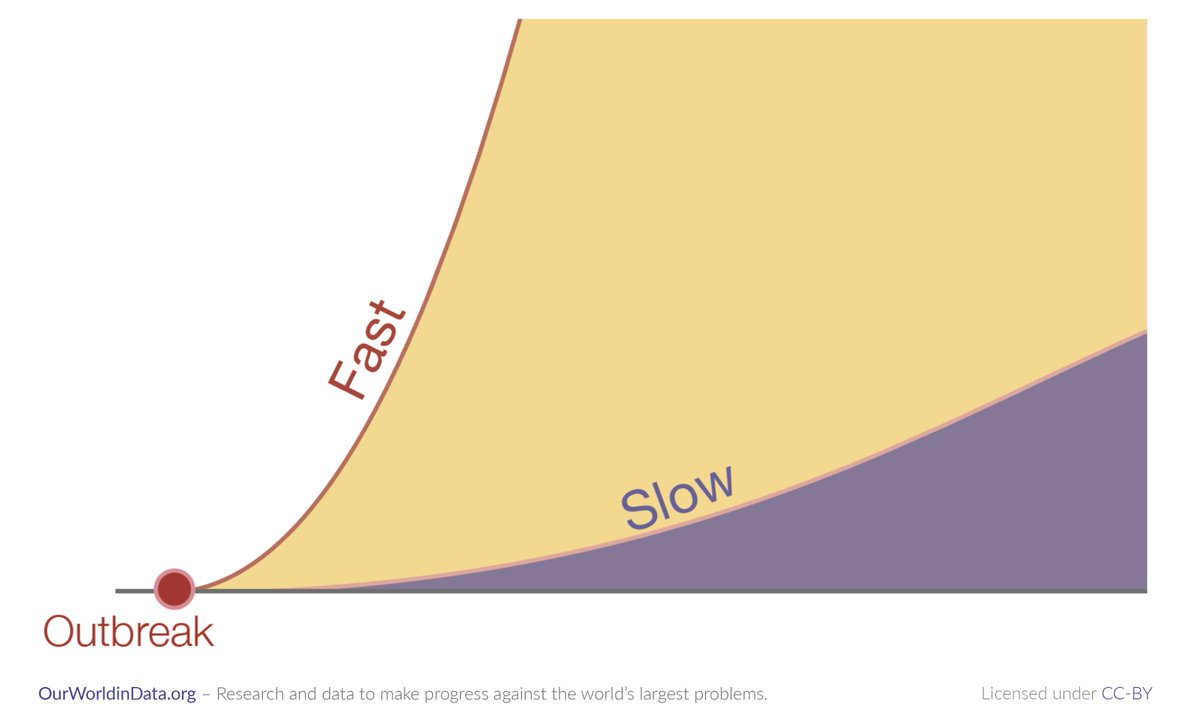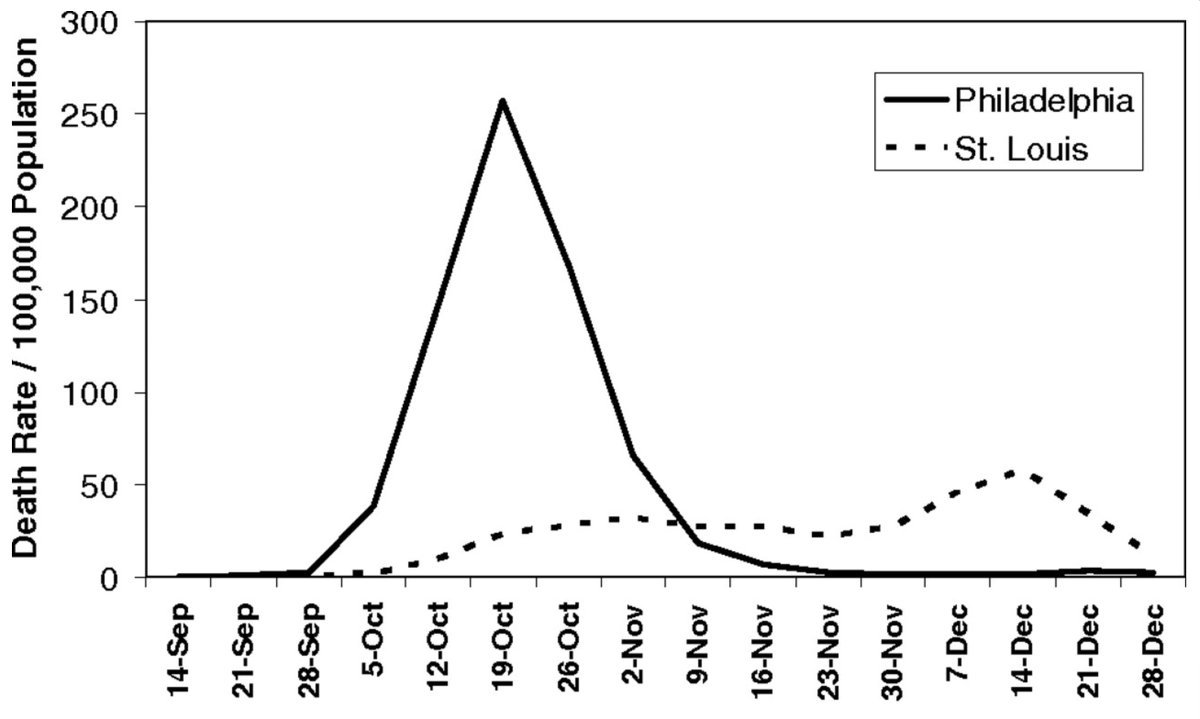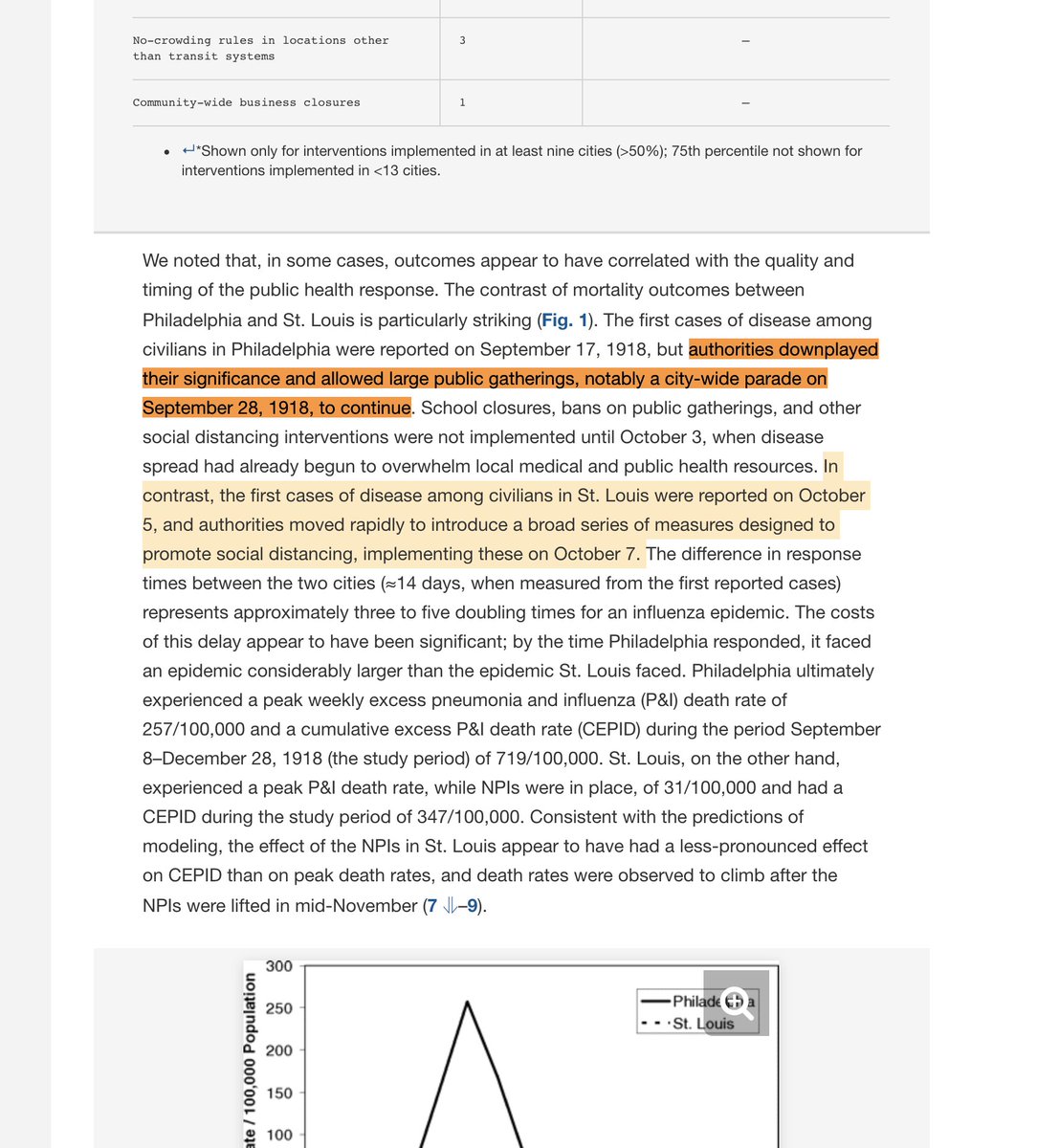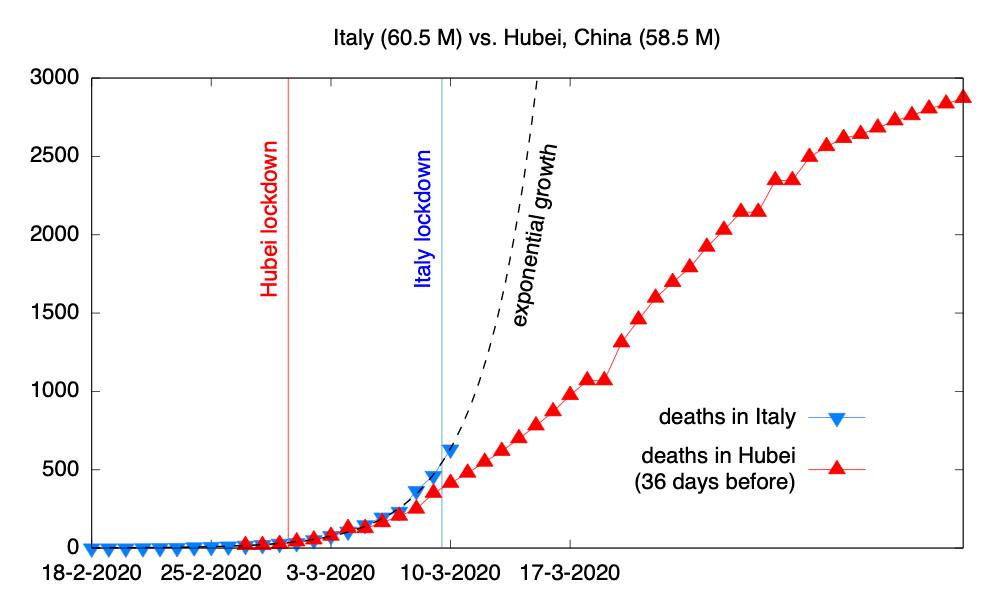––––
👇 Below you find my thoughts on what’s ahead: two possible futures.
Very different futures.
Let’s call it Pandemics, Fast and Slow
These early days are the most important days, because how a pandemic ends depends on how it begins.
And what can we all – including you and me – do?
3 big reasons:
A] We can prepare. Hospitals, doctors, infrastructure etc. can get ready.
B] We give scientists more time to develop the technology we all need now: better tests, medication, and – in the best scenario – a vaccine.
But a doctor can not help 10,000 patients when they are all sick at the same time.
By slowing the spread we reduce the peak and can care for all the people that need care.
[more here: ourworldindata.org/coronavirus#st…]
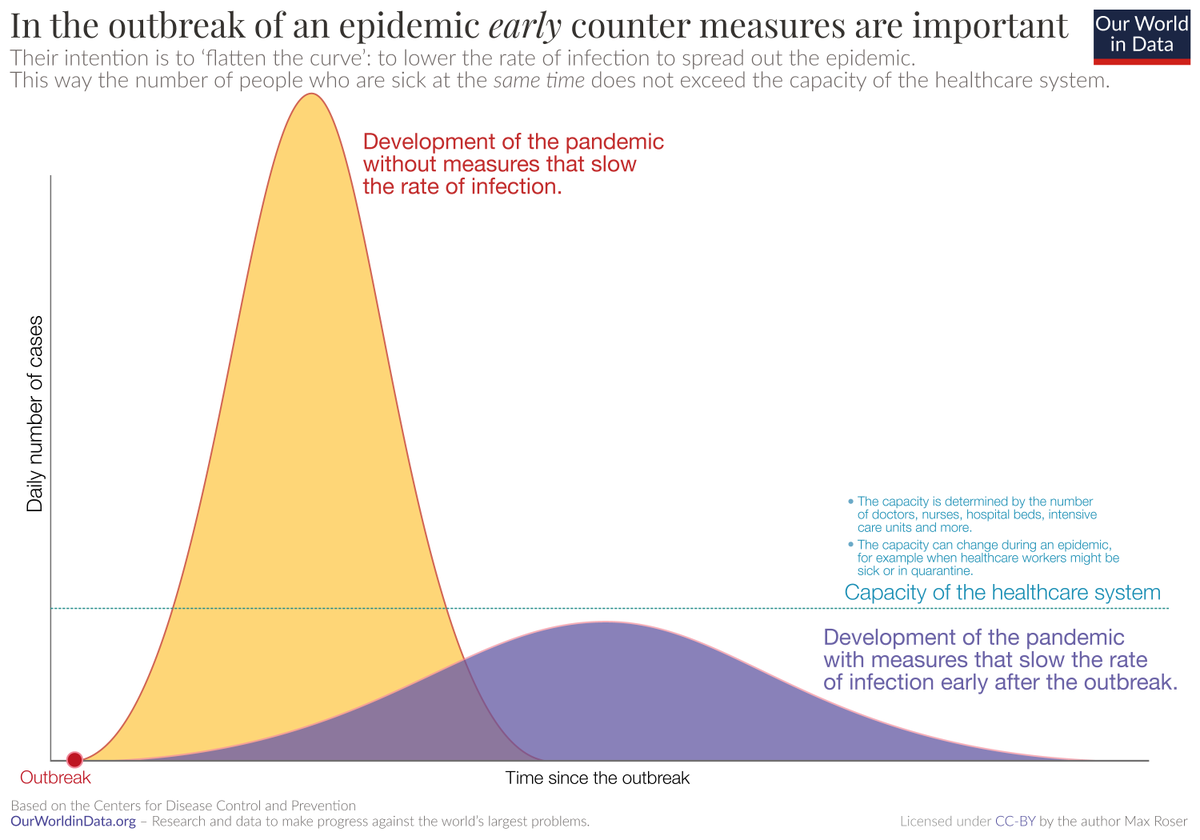
By reducing the speed of infection *early* in the pandemic.
Slowing down the pandemic is the goal of all of us right now.
1 – Not getting infected.
2 – Not infecting others.
As always, there is not just one way to make progress.
I’ll list 8 ways to make progress against COVID19.
But many of us (including me) don’t know how to actually use this superpower.
Wash your hands like you just cut some chillies and now you put in your contacts lenses.
Or for those who can relate to it: Wash your hands like you’ve just changed the diapers.
In non-pandemic times, I’m quite the hugger. But for the weeks ahead: no hugs, no handshake – in 2020 they are a sign that you have a poor grasp of mathematics and science.
Some of us can’t stay home.
Doctors, cashiers, bakers and many others have to go to work.
That’s why – if *you* are fortunate enough to be able to stay at home – you should.
Stay home so that the doctors, cashiers, and bakers can be out.
You depend on them.
They depend on you not getting them sick.
#1 If you are an employer please protect us all and pay your employees when they are sick.
#2 If you are a politician then work on a law that guarantees that right for all.
#3 If you are a voter, vote for #2.
Where many people get together, one infected person can infect many people.
If you can avoid it, don’t go to big events.
If you run big events consider canceling them.
And while the price is high, it has a big upside: a slow pandemic.
One reason I’m a bit optimistic about the weeks ahead: I see many institutions and researchers who do an amazing job in communicating the risks of the COVID19 pandemic.
If you find good work consider sharing it.
The most common ones are a fever (almost 90% of cases) and a dry cough (2 out of 3).
A runny nose is not common for COVID19 cases
[See: ourworldindata.org/coronavirus#th…]
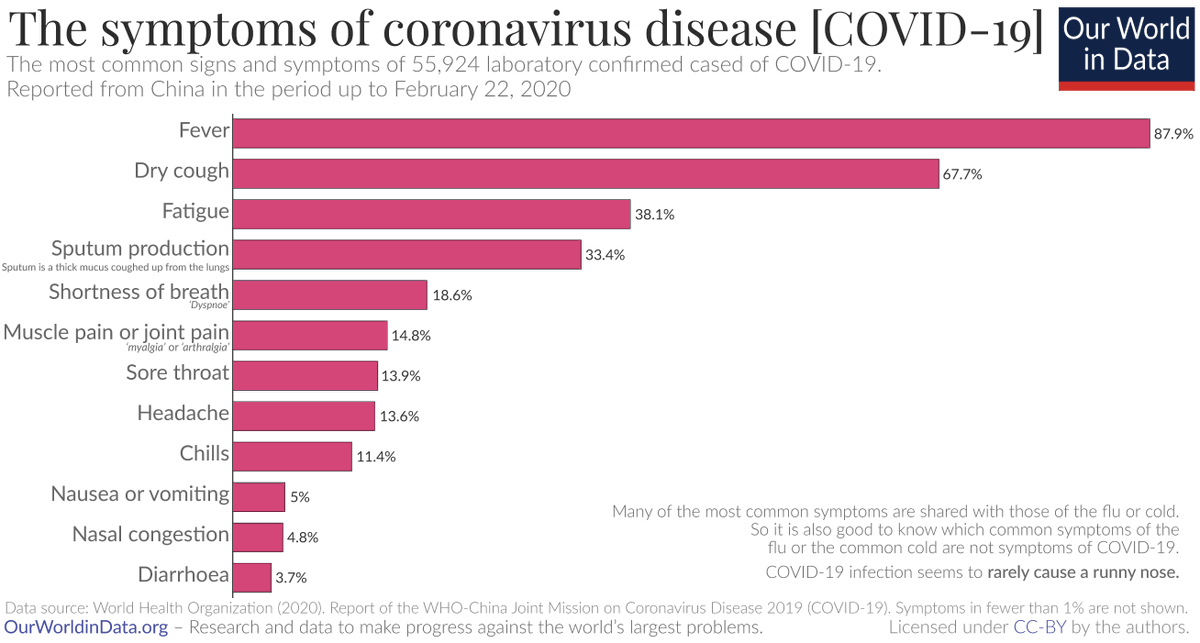
Humanity made a lot of progress against big problems before (see the link if you have doubts).
Research and technology were often key to our success.
ourworldindata.org/a-history-of-g…
Big innovations now could make all the difference between a fast pandemic and a slow one.
So, in these corona days too, we can hope – but not expect – that science comes to the rescue.
But vaccines are hard and take a lot of time to develop.
Testing is crucial because it allows those who are sick to *know* they are sick.
This means they can decide to stay home.
Which means they won’t infect others.
But South Korea shows how much is already possible now.
Other countries look very bad in comparison with South Korea.
See @EOrtizOspina's post below.
And I hope that I convince some of you that we don’t have to accept a fast pandemic as our fate.
We know how to slow the speed of infection and flatten the curve. Let’s do it.

